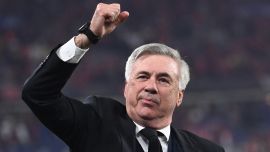Trade disagreements are once again dominating talks within the Mercosur trade bloc, with videoconference meetings ahead of this week’s presidential summit making little headway.
Discrepancies in how to approach external trade deals persisted on Wednesday during talks, with Argentine diplomatic sources saying that disputes over "how quickly trade pacts with other countries and blocs should move in the midst of the pandemic" and "by how much the Common External Tariff (CET) should be reduced" were continuing.
The bloc’s member nations had planned to formally discuss a potential flexibilisation of rules governing talks with third parties – which today must be signed off by all four partners – and a reduction of the CET at a meeting in mid-May, but the meeting was cancelled with no agreement on the horizon.
Argentina has proposed a moderate reduction of the CET, but Brazil and Uruguay are pushing faster and wider revisions that govern negotiations with third countries or blocs. They want to be able to move forward without the agreement of all four partners.
Other issues on the table are the "for-now frozen agreement with the European Union (EU), the bloc's citizenship status and the need to revitalise the bloc," said the sources.
On Thursday, via video conference, the biannual summit of heads of state will be held, during which Argentina’s President Alberto Fernández will hand over the pro-tempore presidency of the bloc to his Brazilian counterpart Jair Bolsonaro. Representatives from Bolivia will be in attendance given its position as an “associated state.”
Foreign and economic ministers from Argentina, Brazil, Paraguay and Uruguay, the Mercosur’s full members, have participated in meetings in the lead-up to the presidential summit. Officials have discussed economies, industries and the trade of automobiles, sugar, toys, textiles and electronics, as well as other items.
Created 30 years ago, Mercosur groups together more than 300 million inhabitants and is the fifth-largest economy in the world, according to the International Monetary Fund (IMF), with a territory of more than 14 million square kilometres.
– TIMES/AFP























Comments